Minnesota continues to face a serious threat of violence by white supremacists and other domestic terrorist groups, two of the state’s top law enforcers said Friday.
Staying ahead of potential incidents has become more difficult because supremacist groups are less organized and operate covertly underground on social media and the internet, said Michael Paul, special agent in charge of the FBI’s Minneapolis Field Office.
Paul, Minnesota Attorney General Keith Ellison and two other community experts spoke to more than 260 people at a virtual town hall about the “unmasking” of white supremacy. Ellison, who is Black and Muslim, discussed the near daily threats he receives and how it won’t make him back down from advocating for racial equality and the prosecution of hate crimes.
“I’m not concerned about my own safety,” he said. “I will never back down and show fear to these bullies. Nobody lives forever. If they are going to get you, they are going to get you.”
Were the riots in May 2020 organized by white supremacists?
Between 1994 to 2020, there have been nearly 900 domestic anti-Semitic and racial terrorist attacks, and the majority of those have been by right wing groups, said Steve Hunegs, executive director of the Jewish Community Relations Council (JCRC). Racial and religious hated were the reasons supremacists recently killed people at a synagogue in Pittsburgh and a church in Charlotte.
“The JCRC works well with law enforcement to protect all houses of worship, not just synagogues,” he said. “We all have to work together whatever threats come.”
Paul, who helped investigate the mass shooting in Las Vegas, said the FBI has seen an increase in violent rhetoric and the acceptance of the use violence to advance ideologies. The internet allows individuals to craft their own ideologies without being part of a group, he said.
“As the seriousness of domestic terrorist attacks grows, they become part of the public narrative,” he said.
Macalester College Prof. Brian Lozenski, who researches how people get involved in white extremism, said part of the reason comes from the country’s Founding Fathers push for white domination through the restrictions on Blacks on property ownership, citizenship and the ability to hold offices.
“We need a national recognition of the story we tell ourselves about the country,” he said.
Steve Belton, president of Urban League Twin Cities, moderated the forum. As a member of Congress in 2018, Ellison said he sent several letters of concerns about white extremism to top law enforcement officials. When he contacted the Department of Defense about the issue, he was told the military had uncovered 27 incidents of infiltration by white supremacists.
Minnesota has robust laws to fight and prosecute hates crimes, but its far more difficult to go after extremists, he said. People can’t be investigated for hateful speech or ideologies unless it incites violence, he said.
When Belton asked him what he says to children when he speaks to them about racial bias and hatred, Ellison said there needs to be more dialogue “because you can’t hate somebody you know.”
David Chanen
___
(c)2021 the Star Tribune (Minneapolis)
Visit the Star Tribune (Minneapolis) at www.startribune.com
Distributed by Tribune Content Agency, LLC.
—-
This content is published through a licensing agreement with Acquire Media using its NewsEdge technology.



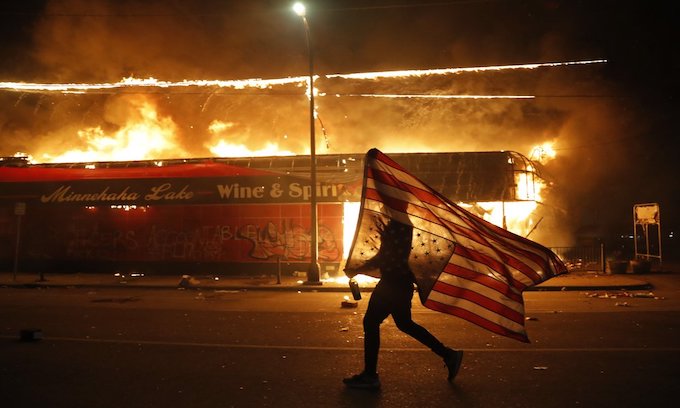
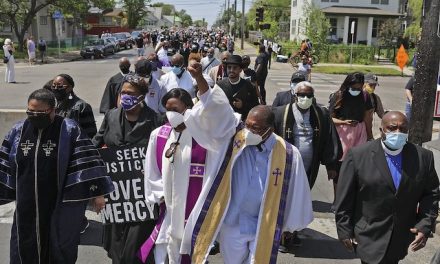
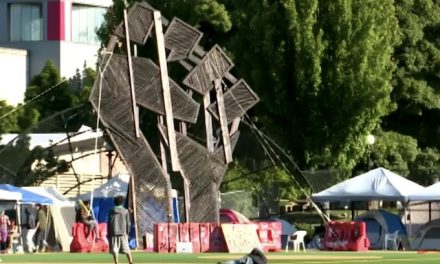
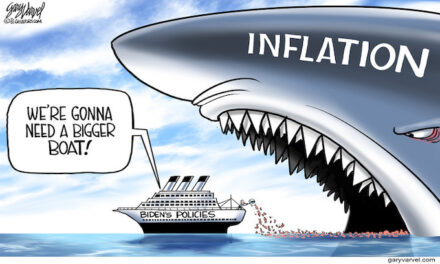
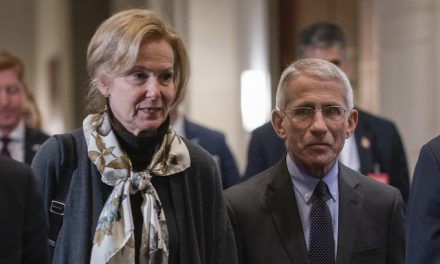






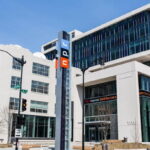

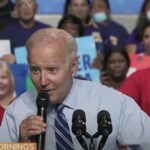
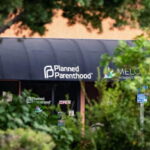
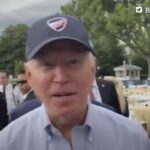
Did anyone notice, there is no mention of blm or antifa in the article? “Staying ahead of potential incidents has become more difficult because supremacist groups are less organized and operate covertly underground on social media and the internet, said Michael Paul, special agent in charge of the FBI’s Minneapolis Field Office”. FBI Agent Michael Paul, a part of the Gestapo FBI, who attempted to bring down Trump and who is obviously going after Trump supporters, since we Trump supporters are all “white supremacists”.
Of course not. THOSE terror groups are FULLY backed and authorized by these traitors in office…
Why is it we never hear a politician or “Black Lives Matter” ever address:
I.A.W. U.S. Census & FBI (Table 43a) Black males make up about 8% of the U.S. population but commit 53% of all the murders and 55% of all robberies in the U.S… Every year there are ~6,000 African-Americans men, women and children killed and 94% of them were killed by fellow African-Americans.
In that light, Bishop Jackson asks: “How many bodies do you have to step over
to get to the one that you think is important only because a police officer was involved?”
(Bishop Earl Walker Jackson Sr. is an African American conservative, Protestant minister.)
Not to mention white people are the minority of the world.
Deuteronomy 28:62 And ye shall be left few in number, whereas ye were as the stars of heaven for multitude; because thou wouldest not obey the voice of the LORD thy God.
America should stop saying “we’re not a Christian Nation”, and stop letting our exalted negro say it either. Satan takes our “religious freedom” to bring his satanic religion to us. Look at what we’ve allowed our country to become: murder, rapist, abortion, queers, traitors. Think GOD will bless this mess. Better read the whole chapter of Deuteronomy 28, see how it fits this hellhole of a country to the letter. Our “reverends” lead us away from the Bible. They’re wolves in sheep’s clothing. Cherish GOD’s WORD, all of it! Take it and eat it up, it may be bitter in thy belley BUT it will be sweet as honey in thy mouth. Return to GOD America!
We could literally be only 1% of the global population, and 3% of the US population. WE WOULD STILL never ever be allowed to call ourselves a minority group, NOR WOULD WE EVER get given any protections GIVEIN TO minority groups.
The criminal activity begins at the top : meaning the whitehouse and floats on down stream one piece of **** at a time until it reaches their supporters who eat it up like it was candy. Their supporters are too brainwashed to see the white supremacy is being doled out by the dem leaders who hand them their free gifts and say: sit, stand, run, destroy, beg, eat up the **** we give you and you will enjoy it! Sadly they do!
Exactly what i’ve said for a good 2+ decades.. WHEN WE the people, continually see those in CHARGE, those Making and swearing oaths to the law, BREAK THEM, and repeatedly get away with it.. It makes US the people, wonder, WHY SHOULD WE follow it!
It IS our OBLIGATION to infiltrate the local political party infrastructure, gain control, and work our way to the top of the State party.
President TRUMP can manipulate the top, but WE, THE PEOPLE are OBLIGATED as a condition of OUR CITIZENSHIP to control who gets nominated to run for offices at all levels.
I am sick and tired of hearing about “White Supremacy”, and “White Privilege” ! These are “Made Up Terms” by people of COLOR, who are actually reverse Racists ! Keith Ellison, happens to be a MUSLIM who was sworn in on the KORAN, instead of the BIBLE ! This makes me VERY suspicious to begin with, as THEIR MORALS and BELIEFS are a World AWAY from mine !
Didn’t you get the memo.. RACISM Towards whites, is not only allowed, its CONDONED…
White extremism comes from the country’s founding fathers’ push for white domination through the restrictions on blacks on property ownership, citizenship and the ability to hold offices?? 250 years ago, that might have been true. I’d like someone to show me where blacks are restricted on owning property or LEGAL citizenship and we KNOW they hold offices in every single state. Hardly a relevant argument in 2021.
Who outside of nutty Minnesotans listens to a racist AG? They elected him; they can keep him.
minnesota is gonna burn just like st.louis and portland and seattle.
And i say, LET IT.
I am white, I am old and sick and tired of the stupid simple slogans that the democrats use in a manner that reflects Goebbels, but more idiotic is their tactics seem to work in the USA.
It started with White racists, then progressed to Nazi, Fascist, misogynist, White supremacists and now, domestic terrorists but only Whites!
Then there are the devout Catholics who support abortions and euthanasia to eliminate living babies.
IF they are ‘abortion supporters’ there is NO WAY IN HELL< they are LEGIT devout catholics!
Ellison the girlfriend beater and race baiter is no one the cast aspersions
Some are never happy with their chosen lot in life. They can change the name of their races as many times as they want but will never negate the fact that if they want to prosper “everyone” not born with a silver spoon must work for what they want or they can depend on the white supremacists to give them their monthly check so they can be kept in check by those in charge.
Fascist Hitler blamed the Jews for all of Germany’s problems and today’s fascists, the Democrats, have taken a page from Hitler’s playbook by blaming White, conservative Americans for many of our nation’s problems. The Democrats fuel fear and hatred of Whites by falsely claiming that White supremacy groups pose the greatest threat to our society and need to be targeted using an aggressive domestic war on terror. Of course, the Democrats fail to name any of these “dangerous” White supremacy groups but you can bet they are including Trump supporters among them.
It looks like the political persecution of White, conservative Republicans will become the new norm under the oppressive Democrats’ rule of the federal government. This is what you can expect when your Constitutional rights are fully protected only if you support the Democrat party.
Makes one wonder, how long it will be before us white folk are forced to band together and form groups to protect each other?
IMO any who tried, would immediately get shutdown by the FBI as a “Domestic terror group”
If they are talking about white supremacists they must mean the Democrats because for 200 years they championed slavery, Jim Crow laws, the KKK, voted against the civil rights laws! Then somehow convinced black voters they were on their side yet over the years made promises they never kept. That is where white supremacy lies!
Making a list and checking it twice,
just to see who is naughty…
and who is nice….
The Original “white Supremacy” group was the KKK, FOUNDED, FUNDED AND PROTECTED by democrats from origination to current.
Aryan Nation, FOUNDED, FUNDED AND PROTECTED by democrats… and THE MEDIA
Neo-Nazis FOUNDED, FUNDED AND PROTECTED by democrats… and THE MEDIA
Black Lives Matter FOUNDED, FUNDED AND PROTECTED by democrats.. and THE MEDIA
Original Black Panthers FOUNDED, FUNDED AND PROTECTED by democrats… and THE MEDIA
New Black Panthers FOUNDED, FUNDED AND PROTECTED by democrats… and THE MEDIA
Antifa, FOUNDED, FUNDED AND PROTECTED by democrats… and THE MEDIA
Assorted “alt-right’ groups ASSIGNED BY THE MEDIA as ‘conservatives, FOUNDED, FUNDED AND PROTECTED by democrats.
IF you need help identifying the difference, here’s the OBVIOUS clues.
VIOLENT BEHAVIOR – DEMOCRAT FOUNDED, FUNDED, AND PROTECTED.
Peaceful, Respectful and Courteous to others around them NOT founded, funded, or protected by democrats.
The proof is, IF a peaceful group is ATTACKED by VIOLENT THUGS they are NOT “white supremacists”.
PROVE ME WRONG!
THEN WE need to figure out a way, to start HOLDING THE MEDIA accountable.. Assuming there IS a way to do so.
“MN AG Ellison Pushes The Idea Of Dangerous White Supremacy Groups.” Uh, excuse me. I don’t think you’ve been paying attention. I believe it was 99% Blacks that destroyed your city.